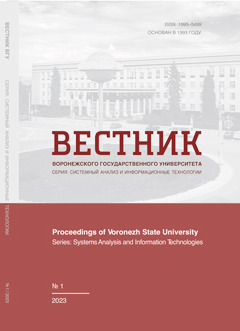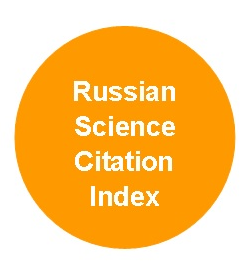Когнитивное моделирование социально-экономических систем: ретроспективный анализ инструментов и информационных систем
Аннотация
В сложившихся геополитических условиях, в условиях введенных экономических санкций в отношении Росси назревает объективная потребность формирования стратегического плана развития как всей экономики в целом, так и определенных ее отраслей. Для стратегического планирования возможно использование различных методов и инструментов. Одним из методов стратегического планирования является программно-целевой метод планирования, который зарекомендовал себя, как эффективный метод форсайта. Можно говорить о провалах плановой деятельности, но данные провалы были связаны не с недоработками и применением научно-обоснованных методов планирования, а с эффективностью управленческого аппарата, который принимал решения. Необходимо отметить, что именно в период применения научно-обоснованных методов планирования нашей стране удалось сформировать и развить промышленное производство разных отраслей, и вопрос импортозамещения не стоял тогда, так как на всех предприятиях были представлены все этапы жизненного цикла продукции. В настоящее время перед страной стоит проблема стратегического развития в условиях введенных экономических санкций. Объемы санкций с каждым днем возрастают и можно лишь предполагать будущие введенные ограничения. Поэтому возникает потребность прогнозирования деятельности на уровне всей страны, отдельных отраслей и предприятий. Одним из таких методов является метод когнитивного моделирования, основанного на нечеткой логике. В последние годы когнитивный подход все чаще применяется в управлении социальноэкономическими системами как внутри страны, так и за рубежом. Этот подход включает использование когнитивных принципов и методов для понимания поведения отдельных лиц в системе, а также взаимодействий и циклов обратной связи между различными компонентами. В данной статье проводится ретроспективный анализ применения когнитивного метода в моделировании. Рассматриваются информационные системы, которые разработаны в нашей стране для реализации задач когнитивного моделирования. И делается оценка существующих программных продуктов. Также представлены теоретические материалы по когнитивному подходу в моделировании с целью понимания применения данного инструментария для моделирования социально-экономических систем с использованием элементов нечеткой логики. Материал статьи может быть полезен начинающим специалистам в области когнитивного моделирования.
Скачивания
Литература
2. Axelrod R. (1976) The Structure of Decision: Cognitive Maps of Political Elites. Princeton. University Press.
3. Casti J. (1979) Connectivity, Complexity, and Catastrophe in Large-scale Systems. A Wiley – Interscience Publication InternationalInstitute for Applied Systems Analysis. Chichester – New York – Brisbane –Toronto: JOHN WILEY and SONS.
4. GAMA. URL
5. Roberts F. (1978) Graph Theory and its Applications to Problems of Society. Philadelphia: Society for Industrial and Applied Mathematics.
6. Solomonoff R. J. (1985) The Time Scale of Artificial Intelligence; Reflections on Social Effects. Human Systems Management. (5). P. 149–153.
7. Moor J. (2006) The Dartmouth College Artificial Intelligence Conference: The Next Fifty years. AI Magazine. 27 (4). P. 87. DOI
8. Ronald R. (2011) Cybernetics, Automata Studies and the Dartmouth Conference on Artificial Intelligence: IEEE Annals of the History of Computing, October–December, 2011. 33 (4). P. 5–16.
9. Tolman E. C. (1948). Cognitive maps in rats and men. Psychological Review. 55 (4). P. 189–208.
10. Abramova N. A. and Avdeeva Z. K. (2008). Cognitive analysis and management of situation development. Problems of methodology, theory and practice. (3). P. 85–87. (in Russian)
11. Vysochina O. S., Danich V. N. and Parkhomenko V. P. (2012) Modeling of production processes at an industrial enterprise by means of simulation modeling system Arena. Radioelectronics, Informatics, Management. (1). P. 82–65. (in Russian)
12. Gorelova G. V. and Kalinichenko A. I. (2018) Toolkit of cognitive modeling of complex systems // Proceedings of XXII International Scientific and Practical Conference “System analysis in design and management” (SAEC-2018), part 1. – SPbGTU: St. Petersburg. P. 399–412. (in Russian)
13. Gorelova G. V., Zakharova E. N. and Radchenko S. A. (2006) Investigation of weakly structured problems of socio-economic systems: a cognitive approach. Rostov-on-Don: Publishing house of Russian State University. (in Russian)
14. Gorelova G. V. and Kalinichenko A. I. (2018) Toolkit for cognitive research of complex systems and human factor risk. Cognitive Modeling: Proceedings of the Sixth International Forum on Cognitive Modeling, 30 September – 07 October 2018, Tel Aviv, Israel. In 2 parts. Part 2: Cognitive Modeling in Science, Culture, Education: Proceedings (CMSCE-2018)”. Rostov on/D: Foundation for Science and Education. pp. 265- 279. (in Russian)
15. Gorelova G. V. and Kalinichenko A. I. (2018) Modeling competition with the help of a software system of cognitive modeling. Vestnik Adygei State University. Series: Economics. (2). P. 114–125. (in Russian)
16. Gorelova, G.V. and Pankratova N. D. (2015) Innovative development of socio-economic systems on the basis of foresight methodologies and cognitive modeling. Kiev : Naukova Dumka. (in Russian)
17. Kalinichenko A. I. (2019) On the software system of cognitive modeling of complex systems as an element of artificial intelligence. Proceedings of XXIII International Scientific and Practical Conference “System analysis in design and management” (SAEC-2019), part 3. – SPbGTU: St. Petersburg. P. 471–478. (in Russian)
18. Kalinichenko A. I. (2019) Application of cognitive tools to the study of labor aspects of quality of life. Voprosy ekonomiki i upravleniya. 2(18). URL
19. Karimov M. Kh. (2017) Application of methods of system dynamics to the study of the peculiarities of the risk management system in the organization. Problems of modern science and education. 24(106). P. 13–16. (in Russian)
20. Kleiner G. B., Rybachuk M. A. and Ushakov D. V. (2021) Mentality of economic agents and institutional changes in search of an equilibrium model. Modern economic theory. Terra Economicus. 19(4). P. 6–20 DOI
21. Korostelev D. A., Lagerev D. G. and Podvesovsky A. G. (2008) Decision Support System Based on Fuzzy Cognitive Models: IGLA. Eleventh National Conference on Artificial Intelligence with International Participation KII-2008, Dubna, 28 September – 3 October 2008. (3). P. 327–329. (in Russian)
22. Kulinich A. A. (2002) Cognitive decision support system “Kanva”. Software Products and Systems. (3). P. 25–28. (in Russian)
23. Kulinich A. A. and Maksimov V. I. (1998) System of conceptual modeling of socio-political situations “Compass”. Collection of papers “Modern Management Technologies”, Мoscow. P. 115– 123. (in Russian)
24. Kulba V. V., Kononov D. A., Kovalevskiy S. S., Kosyachenko S. A., Nizhegorodtsev R. M. and Chernov I. V. (2002) Scenario Analysis of the Dynamics of Social and Economic Systems Behavior (Scientific publication). Мoscow, IPU RAN publ. (in Russian)
25. Maksimov V. I. (2001) Cognitive Technologies – from Ignorance to Understanding. Collected Works. Cognitive Analysis and Situation Analysis Management”, (CASC’2001): Proc. Int. Conf., T. 1. P. 4–18. (in Russian)
26. Program for Cognitive Modeling and Analysis of Socio-Economic Systems of Regional Level. Certificate of state registration of computer programs No. 2018661506 of 07.09.2018.
27. Silov V. B. (1995) Strategic decision-making in a fuzzy environment. Moscow, INNPRO-RES publ. (in Russian)
28. Yakimov I. M., Kirpichnikov A. P. and Trusfus M. V. (2016). Simulation modeling in the Repast Simphony system. // Bulletin of technological university. (19). P. 609–613. (in Russian)
- Авторы сохраняют за собой авторские права и предоставляют журналу право первой публикации работы, которая по истечении 6 месяцев после публикации автоматически лицензируется на условиях Creative Commons Attribution License , которая позволяет другим распространять данную работу с обязательным сохранением ссылок на авторов оригинальной работы и оригинальную публикацию в этом журнале.
- Авторы имеют право размещать их работу в сети Интернет (например в институтском хранилище или персональном сайте) до и во время процесса рассмотрения ее данным журналом, так как это может привести к продуктивному обсуждению и большему количеству ссылок на данную работу (См. The Effect of Open Access).



















